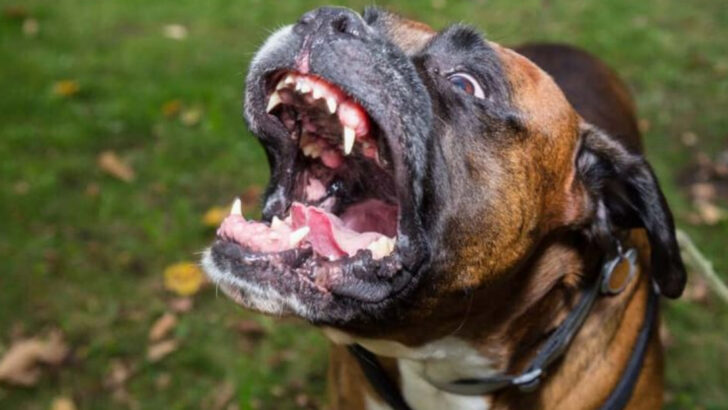Some of the “nicest” dogs are hiding a spicy secret.
Behind that wagging tail? Chaos.
Behind those puppy-dog eyes? A short fuse and zero tolerance for nonsense.
These are the breeds everyone calls “sweet,” “gentle,” and “perfect with kids”…
Until the mail carrier shows up.
Or another dog dares to look at them sideways.
Or you try to take away their favorite sock.
We’re pulling back the curtain on 22 so-called friendly breeds that come with a whole lot of attitude.
They may look like cuddle buddies—but don’t be fooled. These pups can go from charming to chomping in record time.
Chihuahua
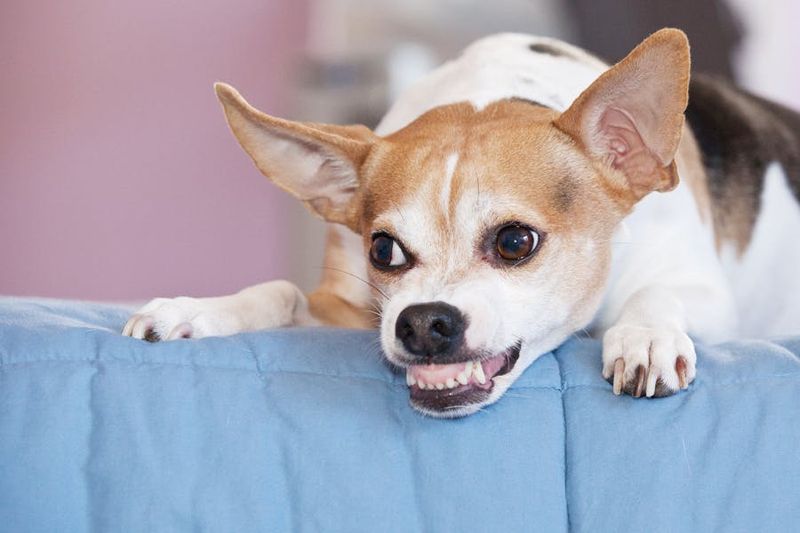
With a bark louder than its bite, the Chihuahua often surprises with its bold nature. Despite its petite size, it carries a big personality, often exhibiting aggressive behavior when threatened or anxious. This little dog can fiercely protect its space and owner, challenging even the largest of canines. Its energy often leads to unexpected nips and growls. Known for its loyalty, the Chihuahua’s defensive nature can be mistaken for friendliness. Understanding its triggers is key to managing its fiery spirit. A true paradox, this breed requires gentle training to temper its feisty attitude.
Dachshund
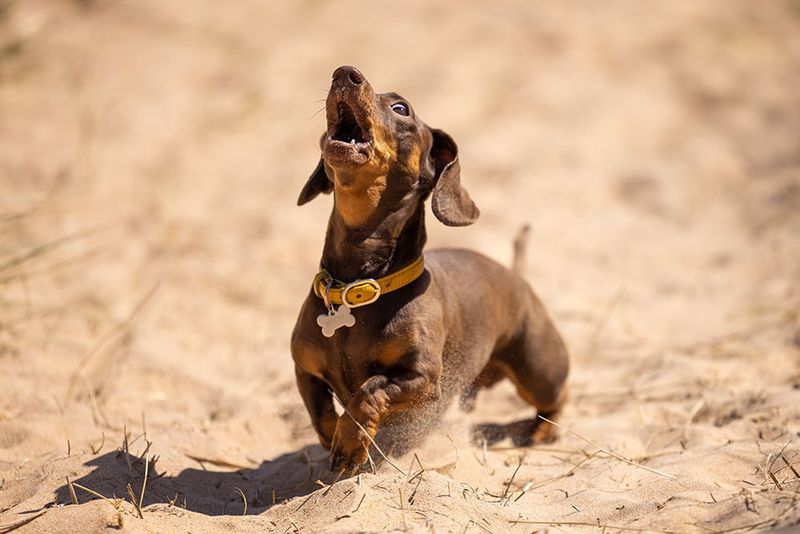
With a history of badger hunting, the Dachshund holds a surprising streak of aggression. Its elongated body and short legs disguise a fierce determination, often leading it to act out when stressed or cornered. Though beloved for its playful antics, it can be territorial and protective. This breed’s suspicion towards strangers can result in unexpected aggression, requiring socialization from a young age. Despite its reputation as a friendly family pet, the Dachshund’s bold nature often shines through, needing patience and understanding to curb its defensive instincts.
Cocker Spaniel
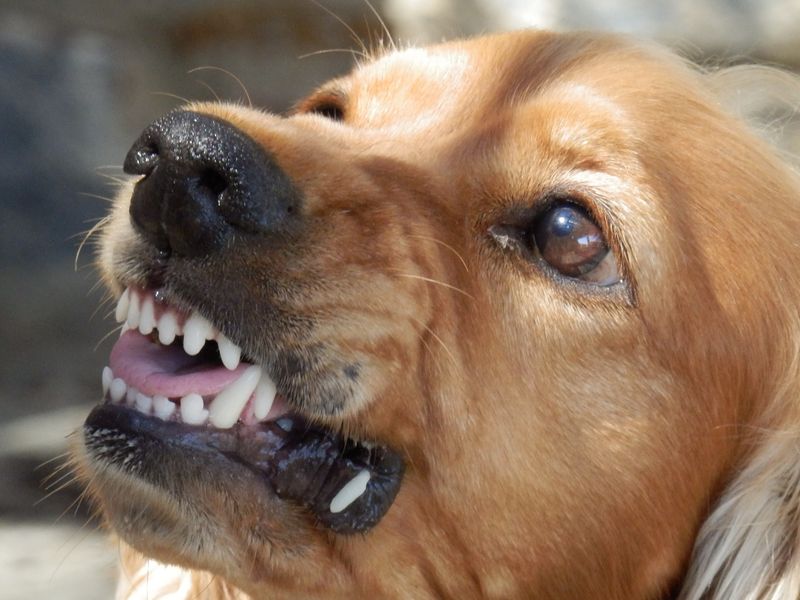
Beneath the Cocker Spaniel’s silky ears lies a breed prone to sudden aggression. Known for its cheerful demeanor, it can become surprisingly hostile, especially when startled or anxious. This breed’s sensitivity to its environment makes it prone to outbursts if not properly managed. Early training is essential to temper its unpredictable nature. While its loyalty is unmatched, the Cocker Spaniel requires careful handling to prevent aggressive behaviors. Its loving nature can be overshadowed by moments of defensiveness, making it a complex yet rewarding companion.
Jack Russell Terrier
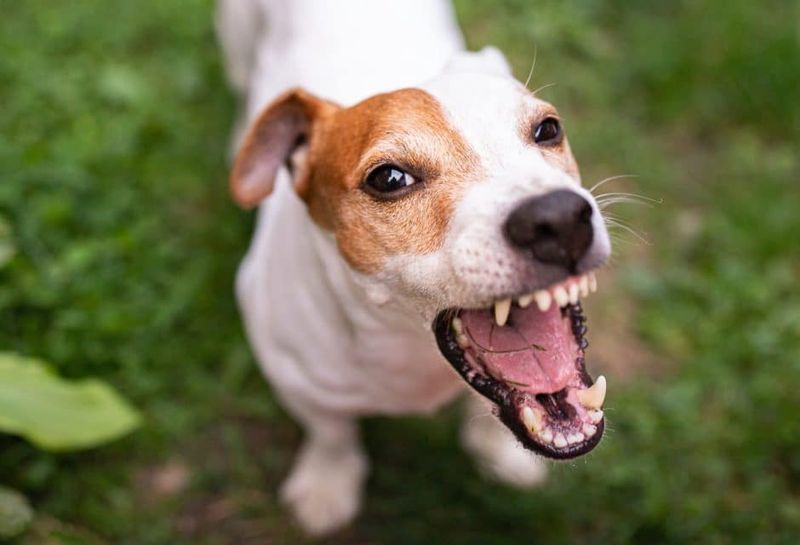
Energetic and full of life, the Jack Russell Terrier is a whirlwind of activity. Known for its intelligence and agility, it can display aggression when bored or under-stimulated. This breed demands constant engagement, or it may resort to nipping and growling. Its high prey drive can lead to confrontations with other animals. Though often seen as a lively companion, its spirited nature requires consistent training and socialization. The Jack Russell’s vibrant personality is both its charm and challenge, demanding a dedicated owner to harness its exuberant energy.
Beagle
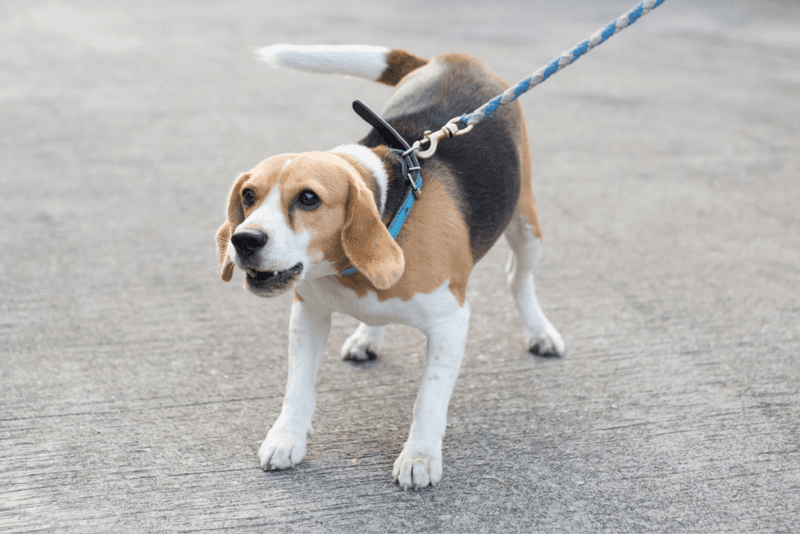
Famous for its keen sense of smell, the Beagle’s friendly face belies a tendency towards aggression when its boundaries are tested. Often stubborn, this breed can become frustrated easily, leading to growls and barking. Its pack mentality makes it protective, sometimes excessively so. Proper guidance and socialization are crucial to prevent unwanted behaviors. While the Beagle’s curiosity is endearing, it’s vital to channel its energy constructively. Known for its loyalty, this breed’s occasional aggressive streak requires careful management to maintain harmony.
Pekingese
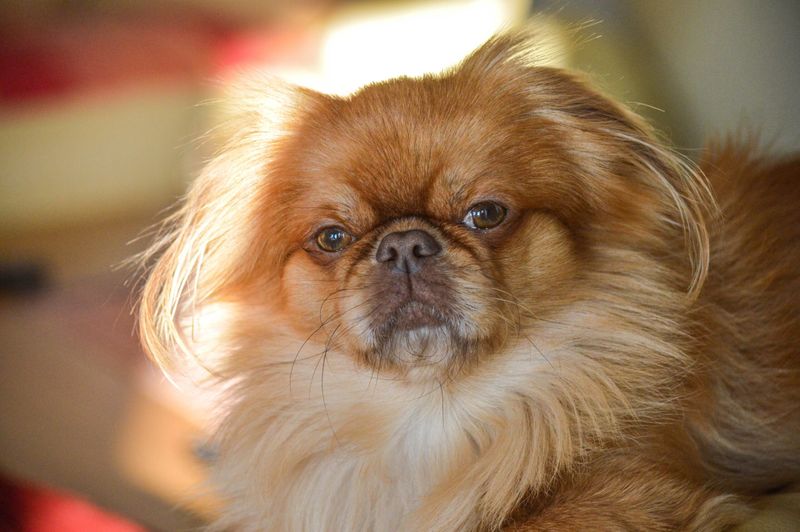
With its regal appearance, the Pekingese demands respect, sometimes showing aggression to assert its status. This ancient breed, once the companion of Chinese emperors, can be aloof and irritable when its personal space is invaded. Its self-assured nature often leads to defensive behavior, especially around strangers. Despite its small size, the Pekingese exhibits a lion-like courage. Its stubbornness requires patient training to prevent aggressive incidents. While fiercely loyal to its family, this breed needs understanding and respect to bring out its best qualities.
Shih Tzu
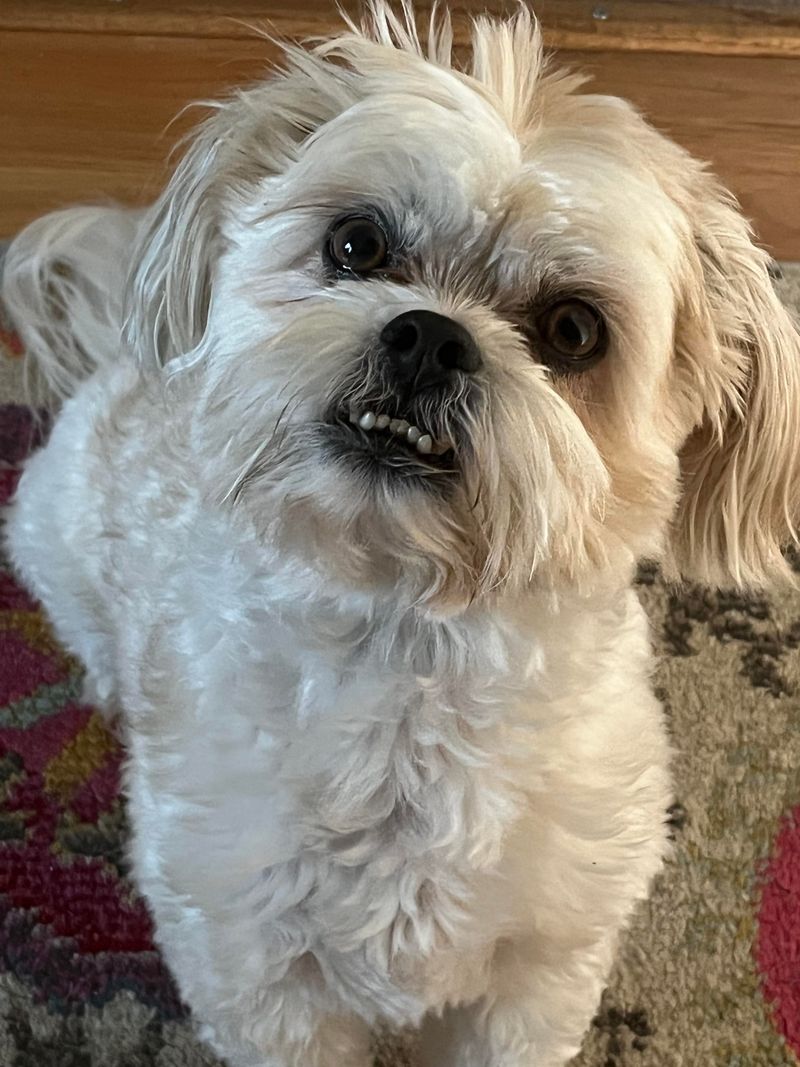
Wrapped in a luxurious coat, the Shih Tzu often surprises with its boldness. While affectionate, this breed can display aggression when pampered excessively or feeling threatened. Its independent spirit sometimes leads to stubborn behaviors, requiring firm yet gentle training. Known for its loving nature, it may react defensively if startled. Socialization from an early age helps mitigate its aggressive tendencies. The Shih Tzu’s playful demeanor hides a vigilant guardian, always ready to protect its loved ones. Understanding this breed’s unique temperament is key to fostering harmony.
Lhasa Apso

Born to guard monasteries, the Lhasa Apso possesses an innate suspicion. Behind its flowing mane lies a breed ready to assert dominance. Known for its independence, it can exhibit aggression, especially if mishandled or provoked. Its instinct to protect makes it wary of strangers, requiring socialization from an early age. Despite its small stature, it holds a big attitude, challenging those who underestimate it. This breed’s watchful nature demands respect and understanding. Proper training helps unveil its affectionate side, balancing its protective instincts with gentle companionship.
Chow Chow
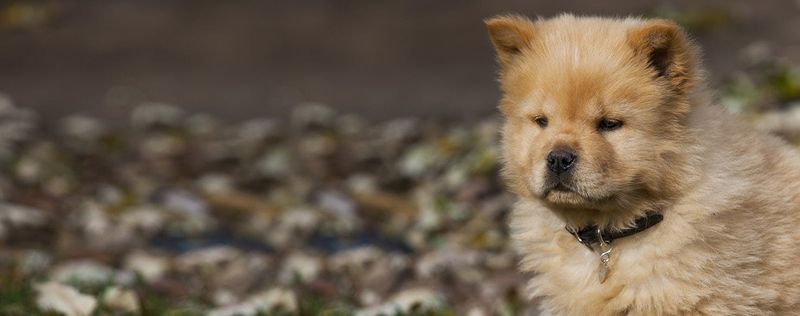
With its lion-like mane, the Chow Chow commands presence and respect. This ancient breed can display unexpected aggression if its dignity is slighted. Known for its aloofness, it requires careful handling and respect for its space. Its independent nature sometimes leads to stubborn behavior, demanding an experienced owner. Despite its regal demeanor, the Chow Chow’s loyalty to family is unwavering, though it may react defensively to strangers. Proper socialization is essential to prevent unwanted aggression. This breed’s unique personality makes it a fascinating, if occasionally challenging, companion.
Dalmatian
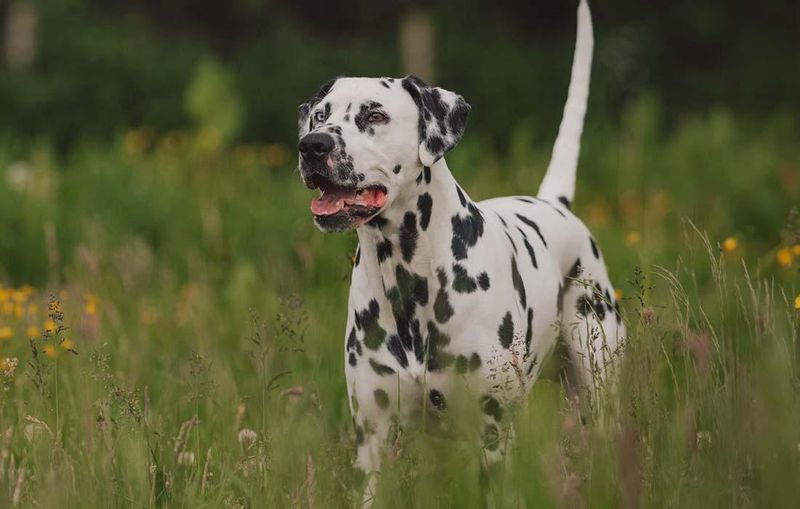
Known for its iconic spots, the Dalmatian is a breed full of energy and intelligence. However, without proper outlets for its energy, it may become aggressive, especially if frustrated or bored. Famous for its role as a firehouse mascot, it demands regular exercise and mental stimulation. Its protective nature can sometimes manifest as aggression towards strangers. Socialization and training are crucial to balance its spirited nature. This breed’s unique combination of elegance and drive makes it both a challenging and rewarding companion for those who appreciate its lively spirit.
Border Collie
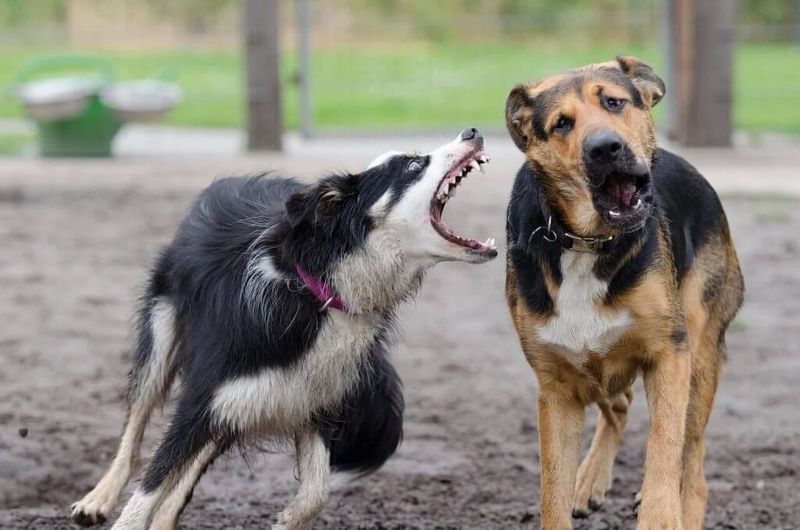
Renowned for its intelligence, the Border Collie is a working breed with a surprising aggressive streak if not properly channeled. Its need for mental and physical stimulation is paramount, as boredom can lead to destructive behavior. Known for herding skills, it sometimes transfers this instinct to people and animals, nipping to control. Though celebrated for its problem-solving abilities, its drive can become overwhelming without guidance. Early training and socialization help temper its natural instincts. The Border Collie’s energy and intelligence make it a captivating, though demanding, companion.
Miniature Pinscher
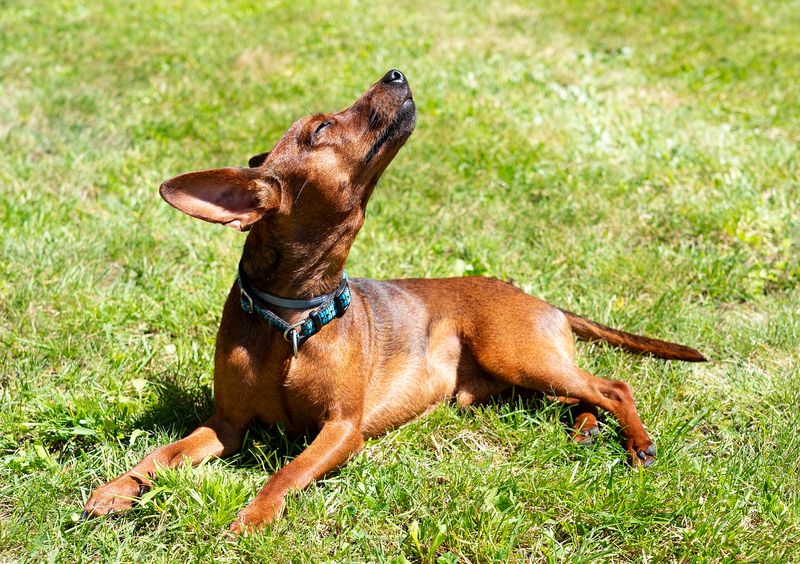
Often called the “King of Toys,” the Miniature Pinscher is a small dog with a big attitude. Its fearless nature can lead to aggressive outbursts, especially when it feels challenged. Known for its lively personality, it often surprises with its protective instincts. This breed requires firm handling and socialization to manage its bold nature. Despite its size, the Miniature Pinscher is a vigilant watchdog, always ready to defend its territory. Training with consistency and patience reveals its charming side, making it a delightful yet spirited companion.
Boston Terrier
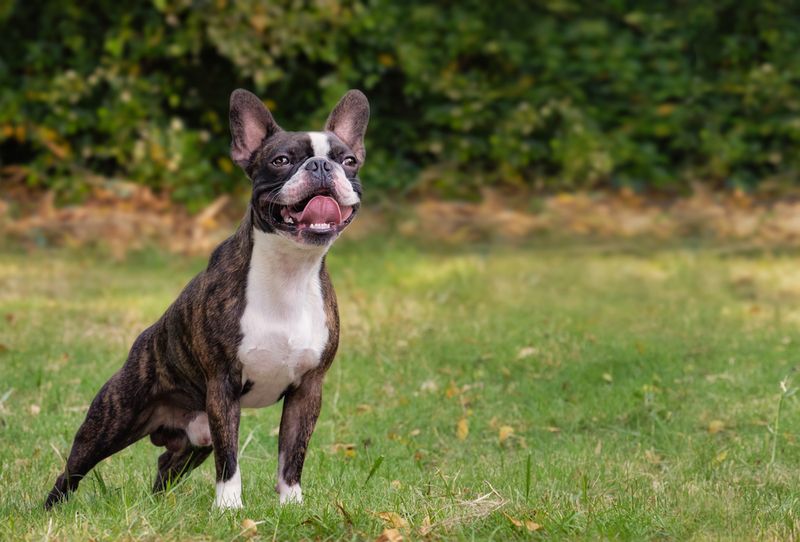
The Boston Terrier, often called the “American Gentleman,” combines charm with unexpected aggression if not trained. Its playful nature can turn defensive, especially around unfamiliar dogs. Known for its boundless energy, it requires proper outlets to prevent unwanted behaviors. Socialization from a young age helps curb its territorial instincts. Despite its lively disposition, the Boston Terrier’s protective side demands careful management. This breed’s unique blend of energy and loyalty makes it a wonderful companion for those who appreciate its spirited personality. Understanding its needs ensures a happy coexistence.
Australian Shepherd
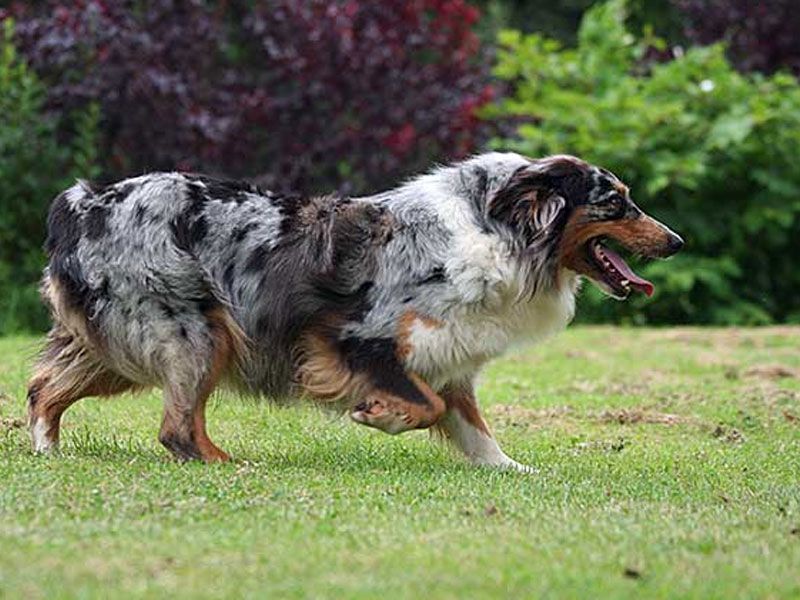
Highly intelligent and energetic, the Australian Shepherd can display aggression if not mentally and physically challenged. Its herding instinct may lead to nipping behaviors, especially in new environments. This breed thrives on activity and purpose, requiring an engaged owner to channel its drive. Known for its loyalty, it can become protective, sometimes excessively. Socialization and training from an early age help manage its strong-willed nature. The Australian Shepherd’s blend of intelligence and energy makes it a captivating companion for those willing to invest in its active lifestyle.
Labrador Retriever
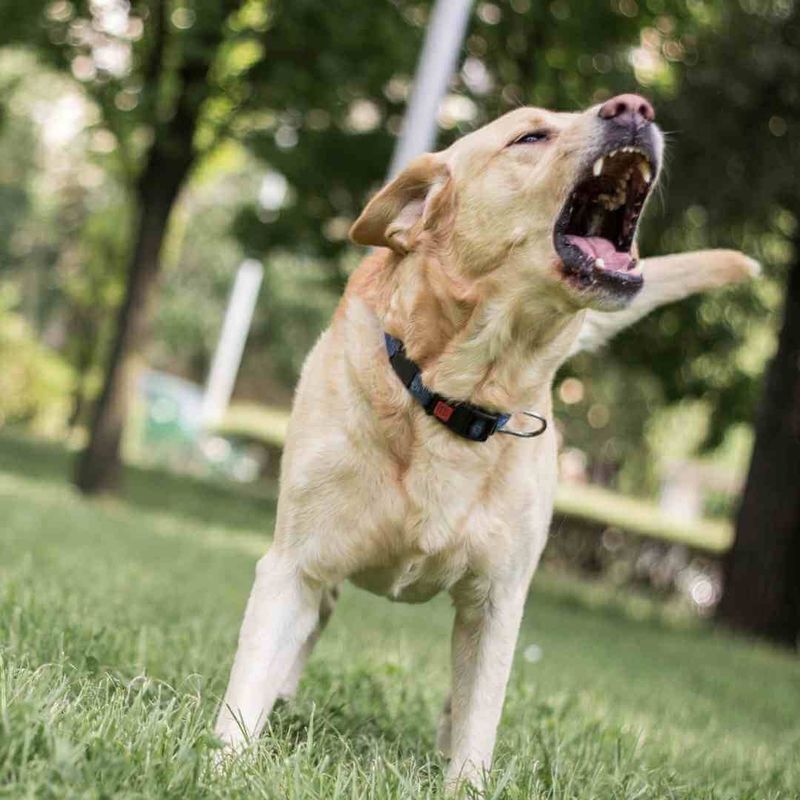
Often seen as the quintessential family pet, the Labrador Retriever can surprise with bouts of aggression, especially if neglected or bored. Known for its friendly disposition, it requires regular exercise and mental stimulation. Its protective nature can sometimes become defensive, necessitating proper training. This breed’s eagerness to please makes it highly trainable, but its energy must be channeled constructively. Socialization is key to preventing unwanted behaviors. The Labrador’s balance of friendliness and protective instincts makes it a delightful, though occasionally challenging, family companion.
Boxer

With boundless energy and a playful spirit, the Boxer can surprise with its aggressive tendencies, especially if not exercised adequately. Known for its strong build and loyalty, it can become overly protective, requiring firm guidance. This breed’s exuberance demands attention and training to prevent unwanted behaviors. Despite its reputation as a family-friendly dog, the Boxer’s spirited nature can lead to challenges without proper management. Socialization and structured activity help balance its lively temperament. The Boxer’s blend of strength and playfulness makes it a dynamic companion for active households.
Rottweiler
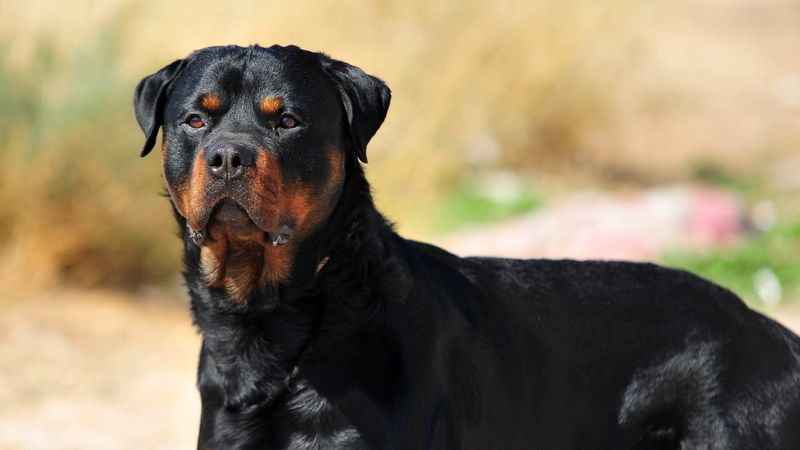
Known for its imposing presence, the Rottweiler commands respect and loyalty. Despite its reputation as a protective guardian, it can display aggression if not properly trained. Its strength requires an experienced owner to manage its assertive nature. Often misunderstood, this breed’s loyalty is unmatched, though it may react defensively to perceived threats. Socialization from an early age is crucial to temper its instincts. The Rottweiler’s blend of power and devotion makes it a remarkable, albeit demanding, companion for those who appreciate its steadfast nature.
German Shepherd
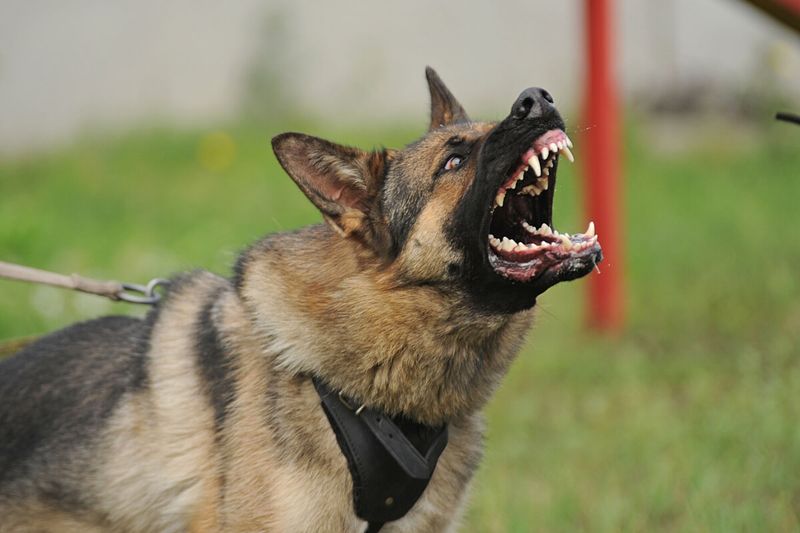
Renowned for its intelligence and versatility, the German Shepherd is a working breed with protective instincts. Known for its loyalty, it may exhibit aggression when guarding its family or territory. This breed’s energy and drive require constructive outlets to prevent unwanted behaviors. Training and socialization from an early age are essential to balance its natural instincts. Despite its reputation as a loyal companion, the German Shepherd’s strong-willed nature demands respect and understanding. Its combination of intelligence and dedication makes it a compelling choice for experienced dog owners.
Doberman Pinscher
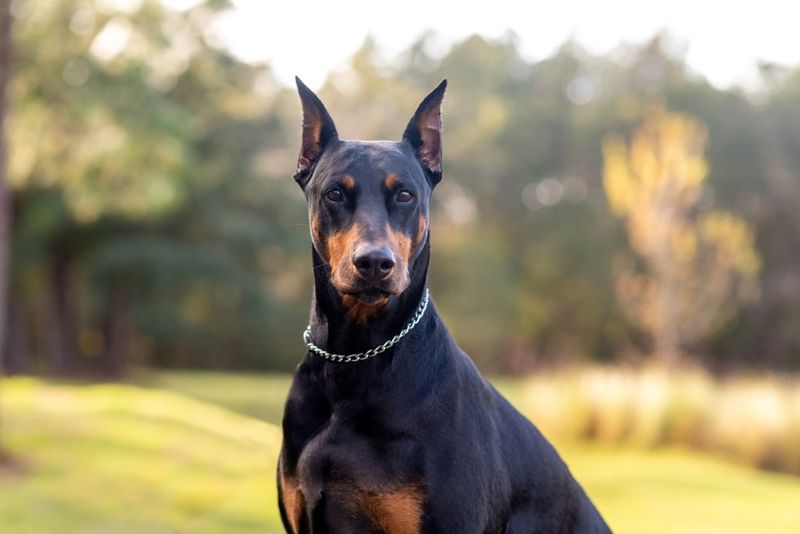
With a sleek, muscular build, the Doberman Pinscher is a breed of elegance and power. Often perceived as a fierce protector, it can display aggression if inadequately trained. Known for its loyalty, it requires firm but gentle handling to manage its instincts. This breed’s intelligence and energy demand consistent activity and mental challenges. Socialization is vital to prevent its protective nature from becoming overly defensive. The Doberman’s blend of strength and loyalty makes it a striking companion for those who appreciate its vigilant disposition. Proper training reveals its affectionate side.
Poodle
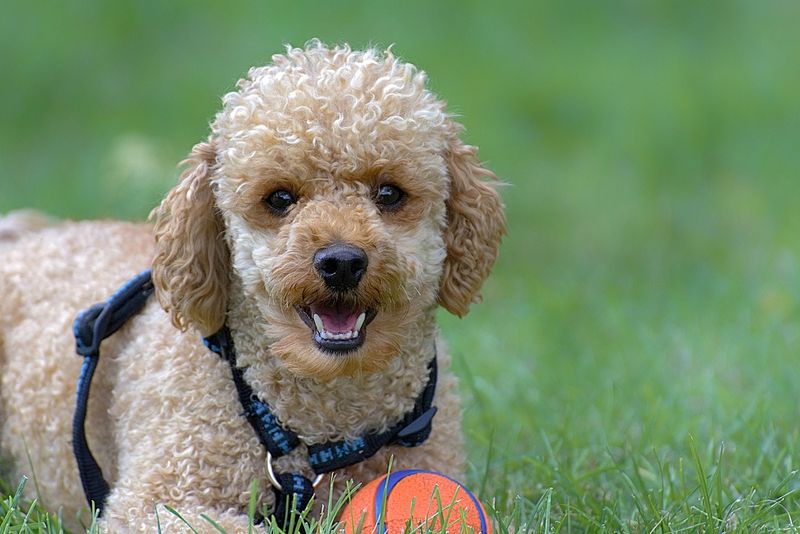
Despite its elegant appearance, the Poodle can surprise with its aggressive tendencies if not properly engaged. Known for its intelligence, it requires mental and physical stimulation to prevent boredom-related behaviors. This breed’s playful nature can turn defensive if not socialized adequately. Training and structured activities help balance its spirited personality. While often seen as a sophisticated pet, the Poodle’s energy and intelligence make it a dynamic, though occasionally challenging, companion. Understanding its needs ensures a harmonious relationship, revealing its charming and affectionate side.
Siberian Husky
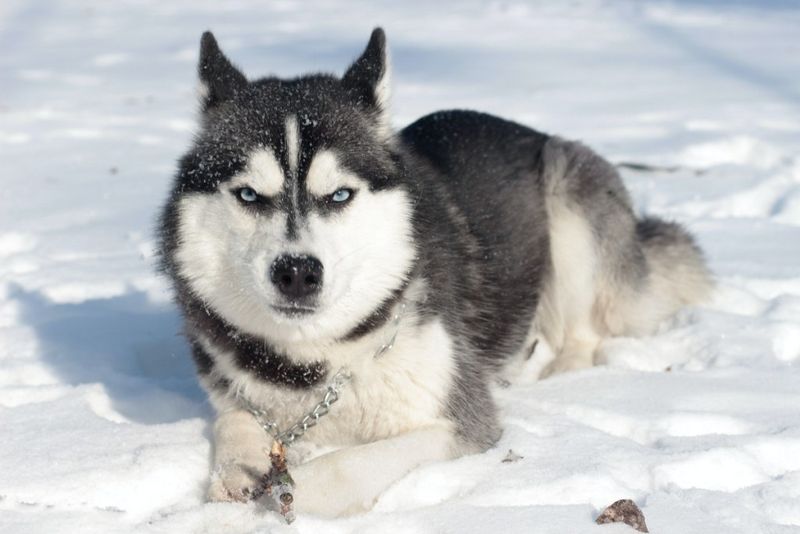
Known for its striking appearance, the Siberian Husky is a breed full of energy and independence. While often friendly, it can exhibit aggression if not properly managed. This breed’s strong prey drive and desire for activity require an experienced owner. Socialization and training are essential to prevent unwanted behaviors, especially around smaller animals. Despite its reputation for pulling sleds, the Husky’s spirited nature can lead to challenges without proper outlets. Its blend of beauty and independence makes it a captivating, yet demanding, companion for those who appreciate its adventurous spirit.
American Cocker Spaniel
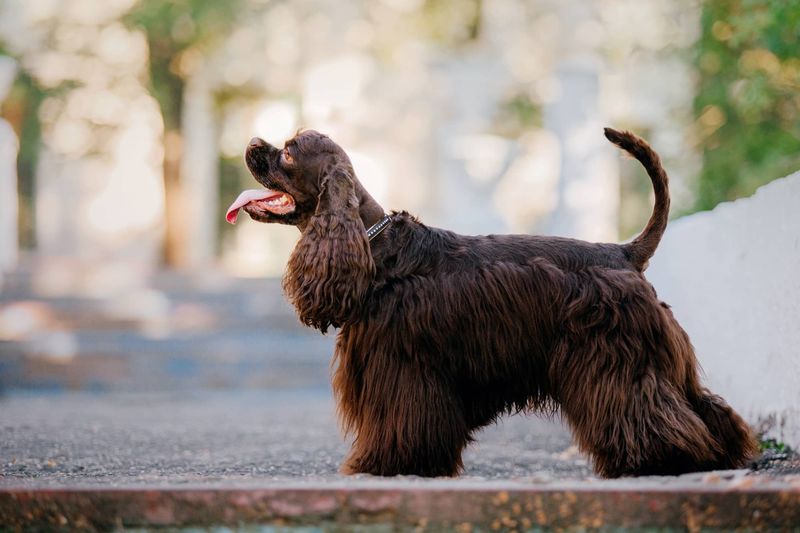
Often admired for its luscious coat and playful demeanor, the American Cocker Spaniel might surprise you with its assertive personality. Its striking appearance, with large, expressive eyes, can often mask the breed’s spirited nature. When provoked or anxious, this breed can exhibit unwelcome aggression, especially towards strangers or other animals. Training and socialization from a young age are crucial to mitigate these tendencies. Owners are advised to establish clear boundaries and provide consistent discipline. Despite its potential for aggression, with the right handling, the Cocker Spaniel can make a loving companion.

